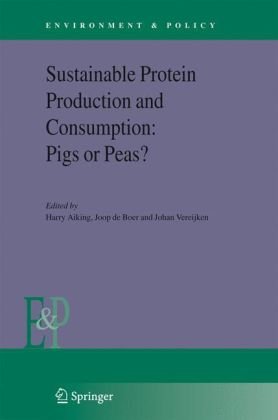

Most ebook files are in PDF format, so you can easily read them using various software such as Foxit Reader or directly on the Google Chrome browser.
Some ebook files are released by publishers in other formats such as .awz, .mobi, .epub, .fb2, etc. You may need to install specific software to read these formats on mobile/PC, such as Calibre.
Please read the tutorial at this link: https://ebookbell.com/faq
We offer FREE conversion to the popular formats you request; however, this may take some time. Therefore, right after payment, please email us, and we will try to provide the service as quickly as possible.
For some exceptional file formats or broken links (if any), please refrain from opening any disputes. Instead, email us first, and we will try to assist within a maximum of 6 hours.
EbookBell Team

4.3
28 reviewsSustainable Protein Production and Consumption: Pigs or Peas? is a book that presents and explores the PROFETAS programme for development of a more sustainable food system by studying the feasibility of substituting meat with plant based alternatives. The emphasis is on improving the food system by reducing the use of energy, land, and freshwater, at the same time limiting the impacts on health and animal welfare associated with intensive livestock production. It is clear that such a new perspective calls not only for advanced environmental and technological research, but also for in-depth societal research, as the acceptance of new food systems is critically contingent on perceptions and attitudes of modern consumers. In this unique multidisciplinary setting, PROFETAS has opened up pathways for a major transition in protein food production and consumption, not by just analyzing the food chain, but rather by exploring the entire agricultural system, including biomass for energy production and the use of increasingly scarce freshwater resources. The study presented here is intended to benefit every stakeholder in the food chain from policymakers to consumers, and it offers guiding principles for a transition towards an ecologically and socially sustainable food system from a multi-level perspective.